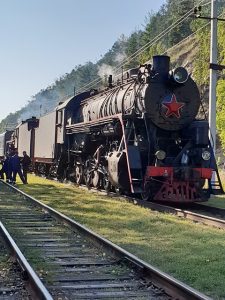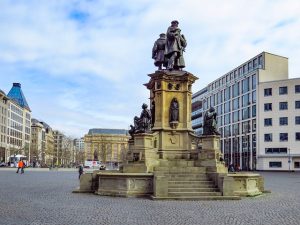約40年でここまで変わったロシアの迷走!?不変のロシア人への思い 〜地元松山市とロシアの長い交流〜
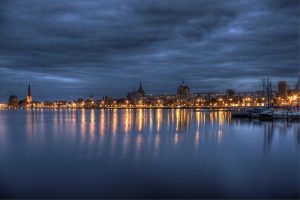 ウラジオストク
ウラジオストク
約40年でここまで変わったロシアの迷走!?
NO6 不変のロシア人への思い 〜地元松山市とロシアの長い交流〜
最後になりましたが、
私は実は、コロナ騒動の前にロシアのウラジオストクへの旅行を計画していました。
ウラジオストクは、シベリアの玄関口とも言えるロシア極東の都市で、
アムール川沿いに広がる美しい街です。
当時、ウクライナ侵攻も始まっておらず、平和な雰囲気の中で「3泊4日」
くらいで、費用も10万円ほどなら行きたいな〜」と思い立ったのです。
そして、シベリア鉄道にも少しだけでも乗ってみたいと夢を描いていました。
しかし、その計画はコロナのパンデミックや、続いてのウクライナ侵攻によって
叶わぬものとなりました。
旅行を諦めざるを得ない状況に直面し、気持ちは複雑でした。
とはいえ、正直なところ、まだ完全には諦めていません。
いつかまた、ロシアが平和を取り戻し、旅行が可能になる日を待っている
自分がいます。
ロシアと聞くと、多くの人が現在のウクライナ侵攻や国際的な孤立を連想します。
しかし、個人的にはそれだけでロシアを評価するのは避けたいと思っています。
私が感じているのは、ロシアの豊かな歴史と文化、
そして一般のロシア人たちの人間味です。
彼らは決して政府の行動と同一視されるべきではないと考えます。
もちろん、国際的な立場や問題は無視できませんが、
ロシアにはそれ以上の「本当の魅力」が存在すると信じています。
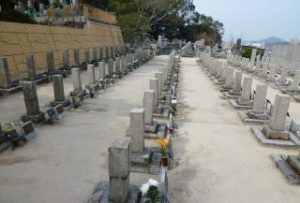 ロシア兵の墓
ロシア兵の墓
そうした中で、日本とロシアとの間にはいろいろ歴史的なつながりがあります。
私が住む松山市にも、歴史に深く刻まれたロシアとのつながりがあります。
1904年に始まった日露戦争の際、日本初の捕虜収容所が松山に設置され、
延べ6,000人を超えるロシア兵捕虜が収容されました。
その中で、祖国に戻ることなく亡くなったロシア兵約100人が、
現在「ロシア兵墓地」として祀られています。
中でも、海軍大佐はその象徴的な存在です。
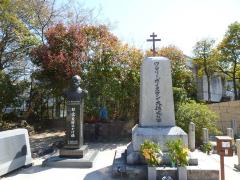 大佐の墓
大佐の墓
この墓碑は、彼らの祖国であるロシアがある北に向かって建てられており、
地元の中学生たちが現在も清掃活動を続けています。
また、私もこの話を聞き、驚きながらも、時々お墓参りに行った経験があります。
この活動は、松山の地域社会が長年にわたりロシアとの関係を大切にしてきた
証でもあります。
当時の松山の人々は、捕虜を罪人ではなく一人の人間として扱い、
友好的に接しました。
この姿勢がロシア兵たちに伝わり、彼らは投降時に「マツヤマ」と
叫んで降伏したという話が残っています。
真偽は不明ですが~?
しかし、このエピソードは、両国の歴史的なつながりを象徴するものです。
そして、少し余談ですが、現在でも松山城の天守にある案内板には
ロシア兵の墓地の位置も表示されています。
また、今後のロシアとの関係を考えた時様々思いが駆け巡ります。
以前の様な良好な関係に戻りたいと思いますが、
現実的には、困難な状況にあります。
ロシアのウクライナ侵攻により国際社会からの孤立が深まり、
経済的な制裁や国内での反対意見の抑圧など、多くの問題を抱えています。
国家としての持続可能性が問われている中で、ロシアがどのように未来を
切り開いていくのかが注目されています。
有事の際の軍事進攻を具体化したり、核兵器で脅したりするためです。
しかし、私は、ロシアがこの厳しい状況を乗り越える力を持っているとも
考えています。
その理由の一つは、ロシアの人々の強さです。
歴史的にロシアは幾多の困難を乗り越えてきましたが、
その背景には一般の市民たちの粘り強さと忍耐力があります。
私たちが忘れてはならないのは、ロシアの政府や政治的な動きとは別に、
そこに暮らす普通の人々の存在です。
彼らもまた、平和で豊かな生活を求めているはずです。
松山市のロシア兵墓地での歴史が示すように、
国境を越えた友好と人間のつながりは、今こそ重要ではないでしょうか。
そして、私はまだ、ロシアへの旅を完全に諦めたわけではありません。
ロシアの魅力と、人々との触れ合いを再び感じることができる日が、
必ず来ると信じています。
次回に続く。
 Vladivostok
Vladivostok
Russia’s Uncertain Path After Nearly 40 Years of Change!?
No. 6 – My Unwavering Feelings Towards the Russian People:
A Long History of Exchange Between Matsuyama and Russia
Finally, I would like to mention that,
before the COVID-19 pandemic,
I had been planning a trip to Vladivostok, Russia.
Vladivostok, often known as the gateway to Siberia,
is a beautiful city along the Amur River in Russia’s Far East.
Back then, there was no invasion of Ukraine,
and I imagined a peaceful,
“three-night, four-day” trip that would cost around 100,000 yen.
I also dreamed of experiencing at least a short ride on
the Trans-Siberian Railway.
However, this plan was thwarted by the pandemic and
then by the subsequent invasion of Ukraine.
Facing the necessity of canceling the trip left me
with complex feelings.
Yet, if I’m honest, I haven’t entirely given up.
Deep down, I still hope for the day when peace is restored in Russia and
travel becomes possible once again.
When people hear “Russia,”
many today immediately associate it with the ongoing invasion of Ukraine and
international isolation.
Personally, however,
I try not to view Russia solely through that lens.
What I feel most strongly is an appreciation for Russia’s rich history and
culture and the humanity of ordinary Russian people.
I believe they should not be conflated with
the actions of their government.
Of course,
I cannot overlook the international stance and issues at hand,
but I truly believe that there is a deeper,
“genuine charm” to Russia.
Historically, there have been various connections
between Japan and Russia.
 the Russian Soldier Cemetery.
the Russian Soldier Cemetery.
My hometown of Matsuyama shares
a significant historical bond with Russia.
During the Russo-Japanese War that began in 1904,
Japan’s first POW camp was established in Matsuyama,
holding over 6,000 Russian soldiers.
Among them, about 100 soldiers who could not return to their homeland
are memorialized in what is now known as
the Russian Soldier Cemetery.
 The gravestone of a navy captain
The gravestone of a navy captain
The gravestone of a navy captain, in particular,
serves as a symbolic presence.
This gravestone was erected facing northward,
toward their homeland, and local middle school students continue
to clean the site today.
I, too, was surprised when I first heard of this history and
have occasionally visited the cemetery myself.
This ongoing activity shows how Matsuyama’s community
has valued its relationship with Russia over many years.
People in Matsuyama at the time treated the prisoners not as criminals
but as human beings, showing them kindness.
It is said that the Russian soldiers,
feeling this warmth, shouted “Matsuyama”
as they surrendered.
Whether or not this is true remains unknown,
but this episode certainly symbolizes
the historical connection between our two nations.
In fact, as a side note,
the sign in the castle keep of Matsuyama Castle still shows
the location of the Russian soldiers’ cemetery.
When I think about Japan’s future relationship with Russia,
many feelings ran through my mind.
Although I hope that we can restore the amicable relationship
we once had, realistically, the situation is challenging.
Due to Russia’s invasion of Ukraine,
its isolation from the international community has deepened,
and the country faces economic sanctions and
suppression of domestic opposition.
While Russia’s viability as a nation is now being questioned,
how it will navigate its future is of great interest.
Military aggression and nuclear threats underscore
the urgency of the situation.
Nevertheless,
I also believe that Russia has the resilience to overcome these severe circumstances.
This belief is partly due to the strength of the Russian people.
Historically, Russia has weathered numerous hardships,
and this resilience can be attributed to the perseverance and
endurance of ordinary citizens.
What we must remember is that, apart from the Russian government’s actions,
there are ordinary people living there.
They, too, likely wish for a peaceful, prosperous life.
As the history of the Russian Soldier Cemetery
in Matsuyama shows,
friendship and human connections across borders are
especially significant now.
And I still haven’t completely abandoned my dream of
visiting Russia.
I am confident that the day will come
when I can again experience the charm of Russia and
meet its people.
To be continued.
